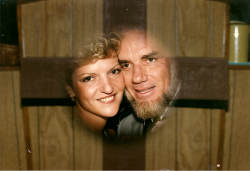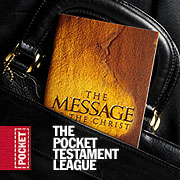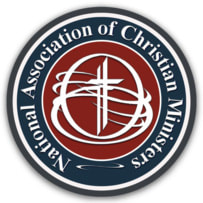What then shall we say, brothers? When you come together, everyone has a hymn, or a word of instruction, a revelation, a tongue or an interpretation.
Thoughts for Today:Greek manuscripts do not contain punctuation marks. Therefore, we might ask, "Did the translators pick the right spot to place the question mark? What if the second sentence was a continuation of the first and the question mark was placed after 'interpretation'? Does it change the meaning?" I think it does a little.
In context, Paul has been speaking about the importance of maintaining order when the Corinthians came together. He is basically saying, "Why does every one of you feel the need to get involved? When you do it is a complete madhouse."
I have attended some very spirit-filled, smaller church services, in which everyone was encouraged to share publically whatever the Holy Spirit had placed upon them to share. This is the picture I have in mind when I imagine what the first century churches must have been like. It can be uplifting and inspiring. However, it can also easily get out of control when words are shared that have no business being expressed in a large gathering. In our passage today, Paul tells us, regardless of our inspiration, the public venue is not the place to share our separate hymn, word of instruction, revelation, tongue or interpretation. And if we do, it causes nothing but confusion and disorder.
Questions to Ponder:Have you ever been in a Bible study that was interrupted by someone who felt the need to regularly express their opinion regarding the subject matter being discussed? While in many smaller formats, this is can be a great interactive learning experience, in most cases it is simply disorderly and intended to gain recognition for the person who is expressing their opinion. Paul warns against this practice. Are you the one who is a disruptive influence? Do you express unsolicited opinions or ask unnecessary questions? What is your motive?





 RSS Feed
RSS Feed
